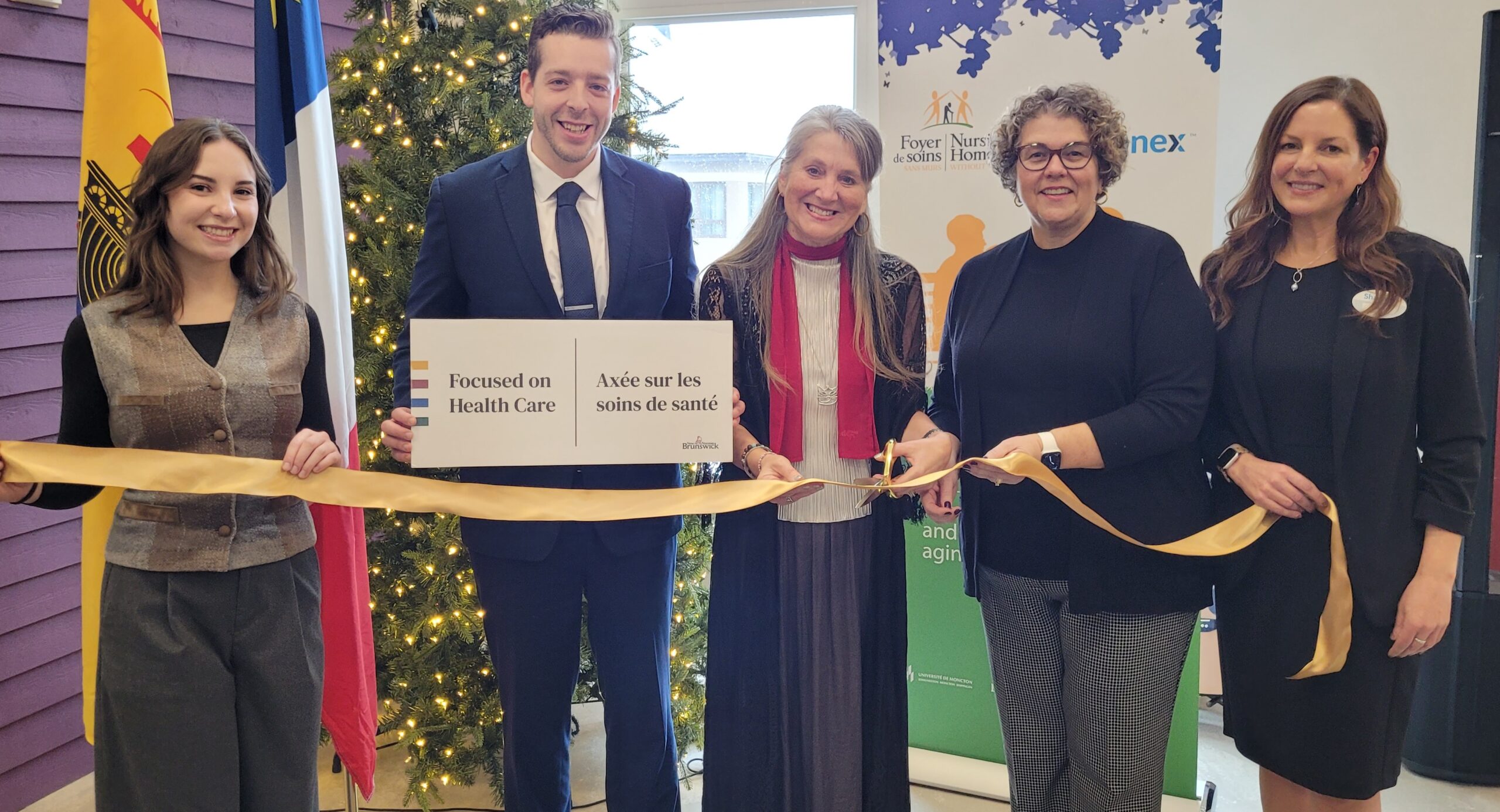As we recognize Alzheimer’s Awareness Month, it’s essential to reflect on the growing impact of Alzheimer’s disease and dementia, particularly as nearly 1 million Canadians will be living with some form of dementia by 2030.
Recently we partnered with the Alzheimer Society of Nova Scotia to launch the Promising Practices Hub, a new initiative, offering a digital space for healthcare professionals to share valuable resources and drive improvements in dementia care. Together, these initiatives emphasize the need for awareness, advocacy, and support in the fight against Alzheimer’s.
Below is a Q&A featuring Courtney Richardson, Manager – Behavioural Health at Shannex, whose dedication to advocating for individuals affected by dementia highlights the importance of education, community involvement, and compassionate care.
Why is it important to highlight Alzheimer’s Awareness Month?
According to the Alzheimer’s Society of Canada, it is projected that by 2030 nearly 1 million Canadians will be living with some form of Dementia. Although this is an illness that affects so many Canadians, there is still a lack of understanding among the public with many misconceptions about the disease. Highlighting Alzheimer’s Awareness Month is important to raise awareness of the disease process and to help people with dementia and their caregivers.
What inspired you to get involved in Alzheimer’s advocacy?
Since graduating from Nursing School in 2009, I have worked in mental health in some capacity. In 2018 I worked at Harbourstone Enhanced Care as an Occupational Health Nurse (OHN). While working in mental health I was a strong advocate in the importance of decreasing the stigma around mental illness and maintaining dignity throughout the life span for people living with poor mental health.
Once starting at Shannex I noticed the need for similar advocacy for people living with dementia and it was an easy transition of my focus. Being safety-focused in my role as an OHN, I watched the upward trend of staff injuries related to responsive behaviours among our residents. Strongly advocating for a better approach to behavioural concerns to ensure staff and resident safety became an important focus topic for me.
Can you share any personal connection or story related to Alzheimer’s?
I do not have any close personal ties to people who have lived through dementia, however, I have watched loved ones close to me supporting people living with Alzheimer’s and seeing their struggles firsthand. Helping not only the people living with Alzheimer’s but also the caregivers is imperative which makes growing the awareness in the community even more important.
What are the most pressing challenges facing Alzheimer’s research today?
Further research into the cause and possible risk factors needs to continuously be explored. In my role, I feel there needs to be a better understanding of the behavioural changes associated with dementia and a higher focus on how to approach those behaviours at all levels of care. The importance of dignity and maintaining choice and risk throughout the lifespan needs to be a bigger focus on how we care for people living with the disease. An infinite number of topics continue to be explored, and all are important, which makes recognizing Alzheimer’s Awareness Month important to ensure we stay focused on advocacy within our communities.
Promising Practices Hub
A key initiative to spotlight this month is the Promising Practices Hub, now live on the Alzheimer Society of Nova Scotia’s website. This innovative digital resource will showcase the projects highlighted at the annual conference, alongside a curated collection of valuable resources for the dementia care sector. It offers healthcare professionals a collaborative space to learn from one another and drive meaningful improvements for individuals with dementia.


